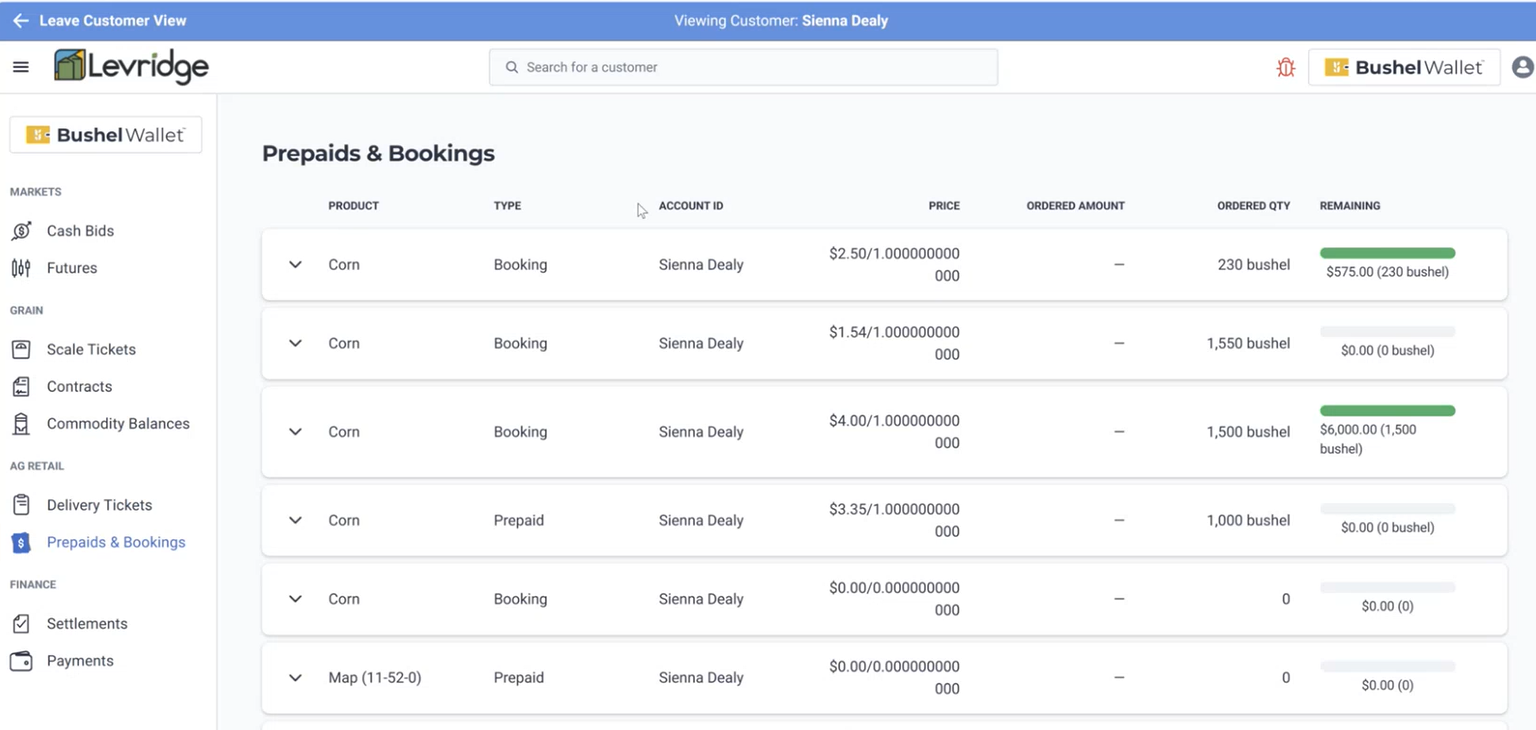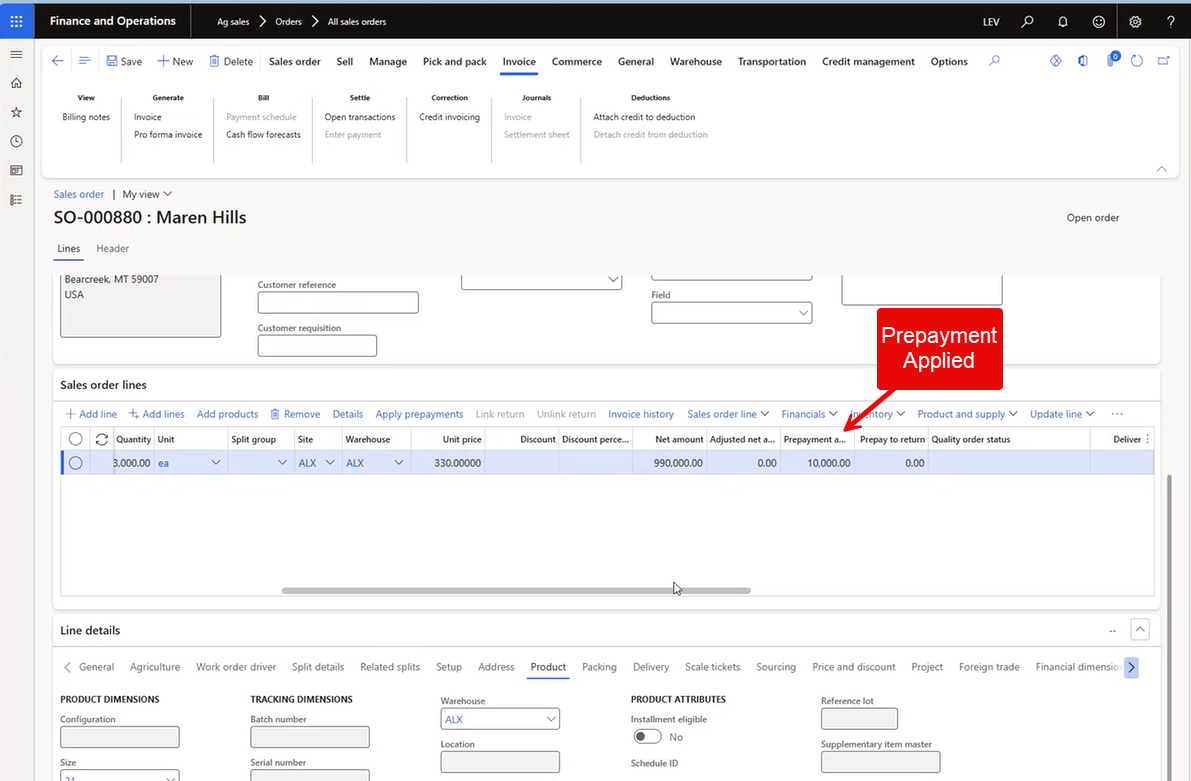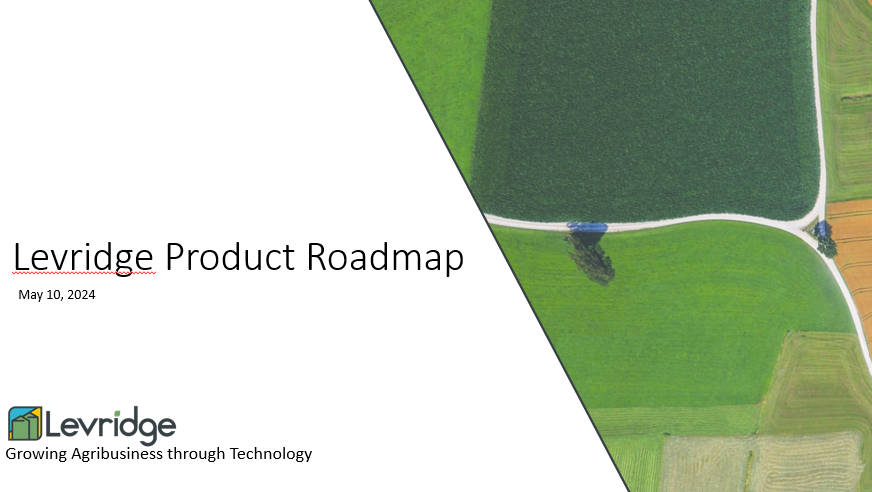
Levridge 2025 Release 1.0 is now available! This release includes features that deepen our integration with Bushel, provide greater flexibility for freight management, and enhance outbound inventory tracking and accuracy.[…]

Levridge 2025 Release 1.0 is now available! This release includes features that deepen our integration with Bushel, provide greater flexibility for freight management, and enhance outbound inventory tracking and accuracy.[…]

The latest update in Levridge Ag Sales 2025 Release 1.0 introduces a bushel integration with prepaid and bookings. […]

The Levridge Ag Sales solution provides a unified solution to simplify operations, reduce manual effort, and enhance reporting. […]

Levridge Commodity Accounting powered by Microsoft Dynamics 365 ensures that agribusinesses are equipped for today’s challenges […]

In today’s fast-paced agricultural industry, grain elevators, processors, and agribusinesses face evolving customer expectations. Growers and buyers require real-time access to tickets, deliveries, […]

Levridge 2024 Release 3.0 is now available! Finishing the year strong[…]

The Levridge 2.0 Product Release is now available. These new features and enhancements extend functionality and create efficiencies in your accounting processes. […]

Levridge has the ability to automatically create a vendor account when a customer account is created.[…]

The Levridge Product Roadmap provides a summary and timeframe for the availability of upcoming new features.[…]
Are you unable to find reimbursement transactions to settle when trying to process a customer or vendor payment journal? If you’re here, there’s a good chance […]